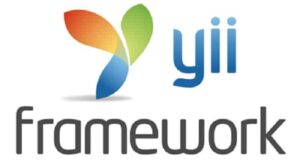In today’s world of evolving technologies, it is essential to ensure that your applications are usable on different gadgets or devices, browsers, and platforms. Applications are created to perform and deliver a seamless experience on multiple devices and operating systems on various platforms. Implementing Quality Assurance in DevOps course comes with challenges, such as lack of the right talent, insufficient expertise, increased costs, and more. It is where outsourcing Quality Assurance comes to the rescue.
We know, QA can help organizations to achieve higher performance and meet consumer demands for software products. Software products are developed today for an interconnected experience. Market-ready in shorter time frames has been pushing the need for launching products in the business.
Continuous development, testing, integration, and deployment have become the norm.
The Agile/DevOps practices now require testing to be carried out simultaneously with development. In this practice, testers are a part of the development process. They are involved in testing the features, releases, and updates in parallel as they get developed.
Testing and deploying a cross-platform product in a highly volatile environment requires experience and additional infrastructure to create a unified experience. With multiple product lines, constant updates of brand new options and the combination of a dispersed user base, finding an outsourcing partner can be a daunting task.
Drawn from our experience, we share some aspects that can guide your decision-making on delivering quality products on time.
Before selecting us as their outsourcing testing partner, our clients applied the following criteria.
Staff augmentation vs. managed services
You can consider staff augmentation when the requirement is short-term, and the tasks are well-defined. Managed services are best suited for long-term projects. In cases where the project requires ongoing support and skill sets that are not available within the business but are crucial to the success of the project, managed services are the best choice. Long-term projects with a clear understanding of outputs and outcomes also benefit from this method.
The smartness of the vendor’s testing practices
Agile/DevOps methodologies increasingly drive software development and testing. Is the vendor able to maintain velocity in an Agile/DevOps environment? Can they integrate their processes into cross-functional, distributed teams to ensure continuous integration, development, testing, and deployment?
Relevant experience working in the industry
Relevant business expertise ensures that the testers concerned fathom your business domain. Business information will not solely increase potency but conjointly guides testers to place testing with the best level of business impact.
Tools, Technologies, and Frameworks that the vendor offers
Understand the seller experience in terms of the tools, technologies, and frameworks and what’s their approach to automation. Do they use/recommend authorized or open source tools? These are some concerns that may guide your analysis.
Onshoring – Offshoring – Bestshoring
Many vendors recommend outsourcing processes to take advantage of cost savings. But does offshoring mean the same beneficial referrals for you? While you can best determine the meaning and limits of offshoring, it is best to travel for a combination of the three. During a managed services engagement, proper shoring (a mixture of onsite & offshore) ensures that the coordination aspects square measure handled by the seller.
Reputation in the market of the vendor
Ascertaining the seller’s name within the market will be another helpful means of analysis. Reading independent reviews about the organization, understanding the longevity of existing engagements (customer stickiness), recommendations from companies that have dealt with the seller in the past, and the various organizational years in the business, measure some valid factors.
The organizational Culture
Your potential partner’s culture should be broadly aligned with your structured culture. The seller ought to establish your culture, be fast to adapt, be ethical, and gel well with the present team. The culture inside the seller organization is also crucial to ensure that the worker’s area unit is respectful of their commitments and kept in charge of allotted responsibilities.
High-quality Vs. Low-cost output
By partnering with people with expertise in the required domain and technology and working on a customized delivery model within a given time frame, you will be rewarded. But they are more likely to add value compared to a cheap, fragmented solution with an inexperienced workforce, little or no knowledge of industry-specific skills and technology, and an uncertain commitment to on-time delivery.
Conclusion
Finally, all that you need to know about QA outsourcing and finding value in DevOps world is explained in detail here.We discussed the criteria which our clients applied before selecting us as their outsourcing testing partner.Quality assurance needs to be done at every stage of the project if you want to meet the requirements of a highly competitive market. Unless you have a dedicated department already, in-house quality assurance is a messy and costly endeavor. That is why so many software development teams and businesses prefer to work with remote third-party teams. They will be in charge of all the processes so that you can enjoy the results.
Do you know of other factors that influence a decision when it comes to finding the right outsourcing partner? Please share your thoughts.
AuthorCelin Das is the Senior Consultant (QAT Spoc) – Technical Content Writer at Trigent Software Inc. She has 10 years of extensive experience in Quality Assurance Testing. She has a Post Graduate Degree in Computer Application and has worked on various domains during her time during software testing. She excels in writing technical papers, and blogs, and doing research on new technologies.



